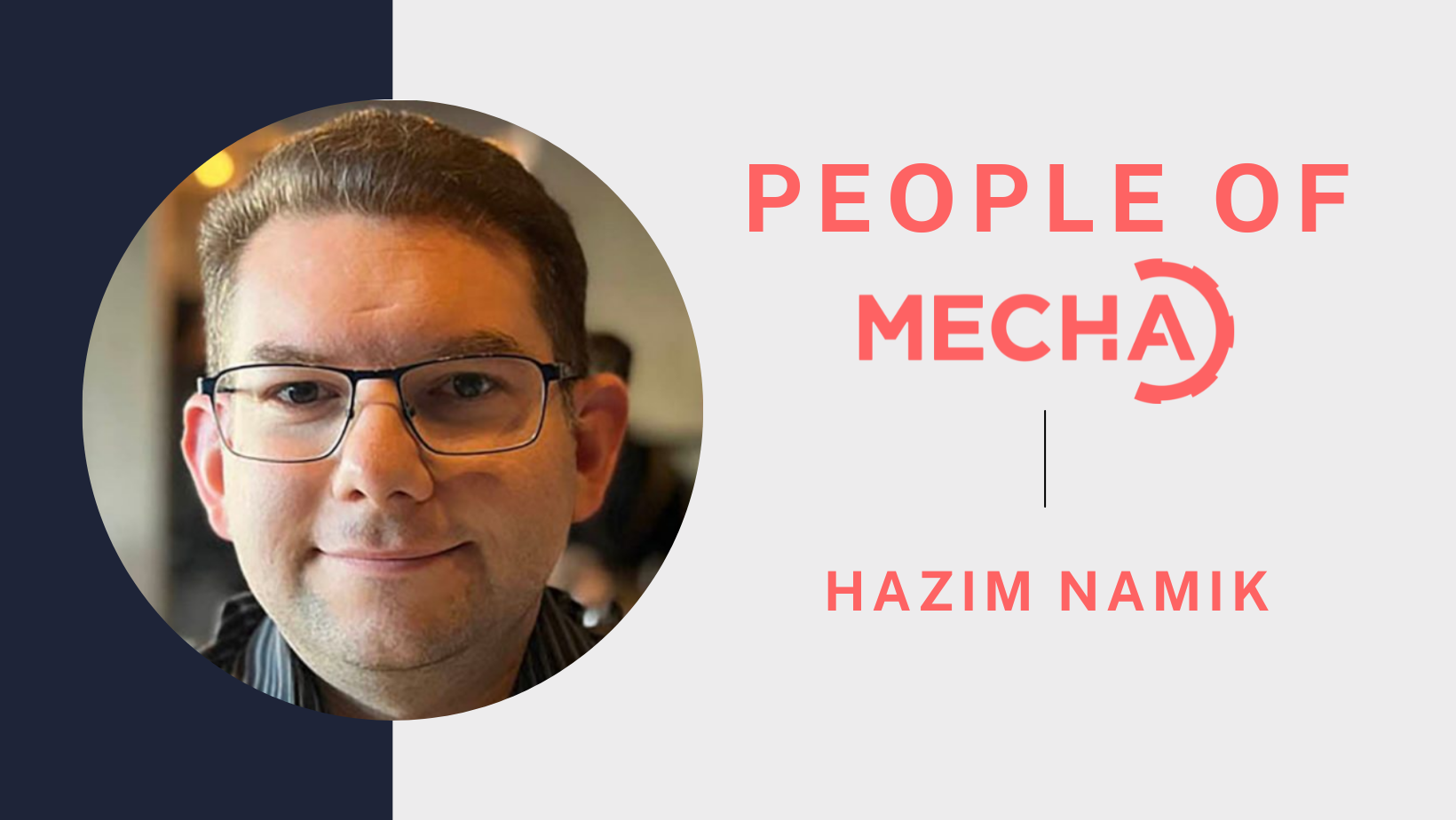People of MECHA: Hazim Namik

7 Holy Steps to the Mech/Tron Experience
Knowing what you know now, what would you do differently as an undergrad?
Looking back, I think it would’ve been really cool to join more hands-on engineering application clubs during my studies, like Formula SAE or any of the robotics clubs available. At that time, the only option I had was probably the Formula SAE Club.
Being part of these clubs would have given me the chance to put into practice what I was learning in my courses. I could have seen the concepts in action without the stress of worrying about grades or assessments that are forced upon us. It would have been an exciting experience to see the theories come to life through practical projects.
What have been your biggest challenges as a lecturer at the University?
Time management.
There are so many things that demand attention, from administrative tasks to organising my own courses, and of course, the never-ending stream of emails to respond to, it can feel overwhelming at times. In fact, I'm drowning in emails right now.
It's important to me to give everything I do a hundred percent attention. I strive to avoid rushing through tasks and sending out inaccurate or incomplete information. However, this requires a significant amount of time and keeps me incredibly busy. Balancing various responsibilities can be challenging, but I prioritise giving each aspect the attention it deserves to ensure a positive experience for everyone involved.
You teach Part I, II and III. Which one is your favourite? 👀
You can’t pick [laugh] and It's not about parts!
In Part I, the students are all excited and eager to attend lectures. I really enjoy seeing their engagement during class—it makes the lectures more interactive and enjoyable.
For Part II, these students are fresh to mechanical and mechatronics. They're all enthusiastic and trying to get a hang of everything. It's great to see their curiosity and willingness to dive into the subject.
For Part III, things get really interesting. I can have more advanced conversations with these students, and it's intellectually engaging. We get to discuss topics that align with my own research and interests. It's a stage where they go deeper into the stuff that I truly love.
In your opinion, what do you think is the most important course Mech/Tron students take?
When it comes to what's most important in mechanical and mechatronics engineering, there's no single answer—it all depends on where you want to end up. These fields are so broad, and what matters most varies based on your interests.
Let's say you're really into composite materials and all that cool stuff. In that case, the mechanics of materials courses would be super important for you. On the other hand, if you're more into energy efficiency in buildings etc, focusing on the thermo-fluids and thermal engineering courses would be a big help.
I could go on and on, but personally, I think design takes the cake in terms of importance. That's where you get to put all that theory into practice through design projects. It's where the knowledge you've gained actually becomes a part of your skills. Just studying something for a course means you'll probably only remember it until the exam. Once the exam is over, most of it just vanishes out of your memory. But when you work on design projects, trust me, you'll remember it for a long time. It sticks with you in a way that regular studying doesn't.
If you had one piece of advice to give to students seeking an internship, what would it be?
Keep your options open. Your concern about engineering job experience counting towards practical hours, especially between part two and part three, may not be as restrictive as you think. In some cases, an actual engineering internship is not necessary. You could explore opportunities in related fields, such as working in a factory or a similar environment that involves tasks related to engineering. (Practical Work - The University of Auckland )
While I advise you to verify this with Jonathan Stringer (our Practical Work Committee department representative), I can share my personal experience. During my transition from part two to part three, I worked in a factory where my role was to assemble projectors. You see, I was just mindlessly assembling lights…But although I wasn't directly involved in design or engineering work, the experience provided valuable insights into manufacturing processes, which proved beneficial in the future. So, don't limit yourself to exclusively seeking engineering positions, especially if you're transitioning from part two to part three. Most engineering companies prefer to hire third-year engineering students or above, and landing an engineering-related position at this stage would be very lucky.
On the other hand, the Summer Research Scholarship can also be an excellent opportunity to gain insight into the research field. If you have even a mild interest in research, I encourage you to explore and apply for summer research scholarships. Keep an eye out for upcoming advertisements for these opportunities. Again, there is preference towards third year or above for these scholarships.
If you had to teach a class about something completely unrelated to your field of expertise, what would it be and why?
I think it would be cool to have a course on LaTeX writing. We could learn about using LaTeX for creating professional reports. It's not exactly engineering, but it's definitely relevant for scientific documentation. It might not be my area of expertise, but it's a valuable skill to have for academic reports.
In the real world, when you graduate or work in a consultancy, you might not come across LaTeX that often. However, learning it can still benefit you by improving your academic work and enhancing your ability to communicate effectively in a scientific setting.
What are your 7 holy steps for students when they enter their academic career?
I can’t come up with 7 on the spot [laugh], but when it comes to grants and funding, grab every opportunity that comes your way. Don't hesitate to seek out collaborators within your department, across departments, and even across faculties. Cast your network as wide as possible, because the more connections you have, the more chances for exciting collaborations to pop up.
Now, let me clarify that I'm a professional teaching fellow, and my main focus is teaching. This is different from a lecturer position on the research track, so this is from what I observe rather than what I've done. But basically, keep applying for grants. Keep applying and don't be disheartened with rejection. Most grants get rejected because there's a limited pot of money that must be distributed across many different academics and universities.
